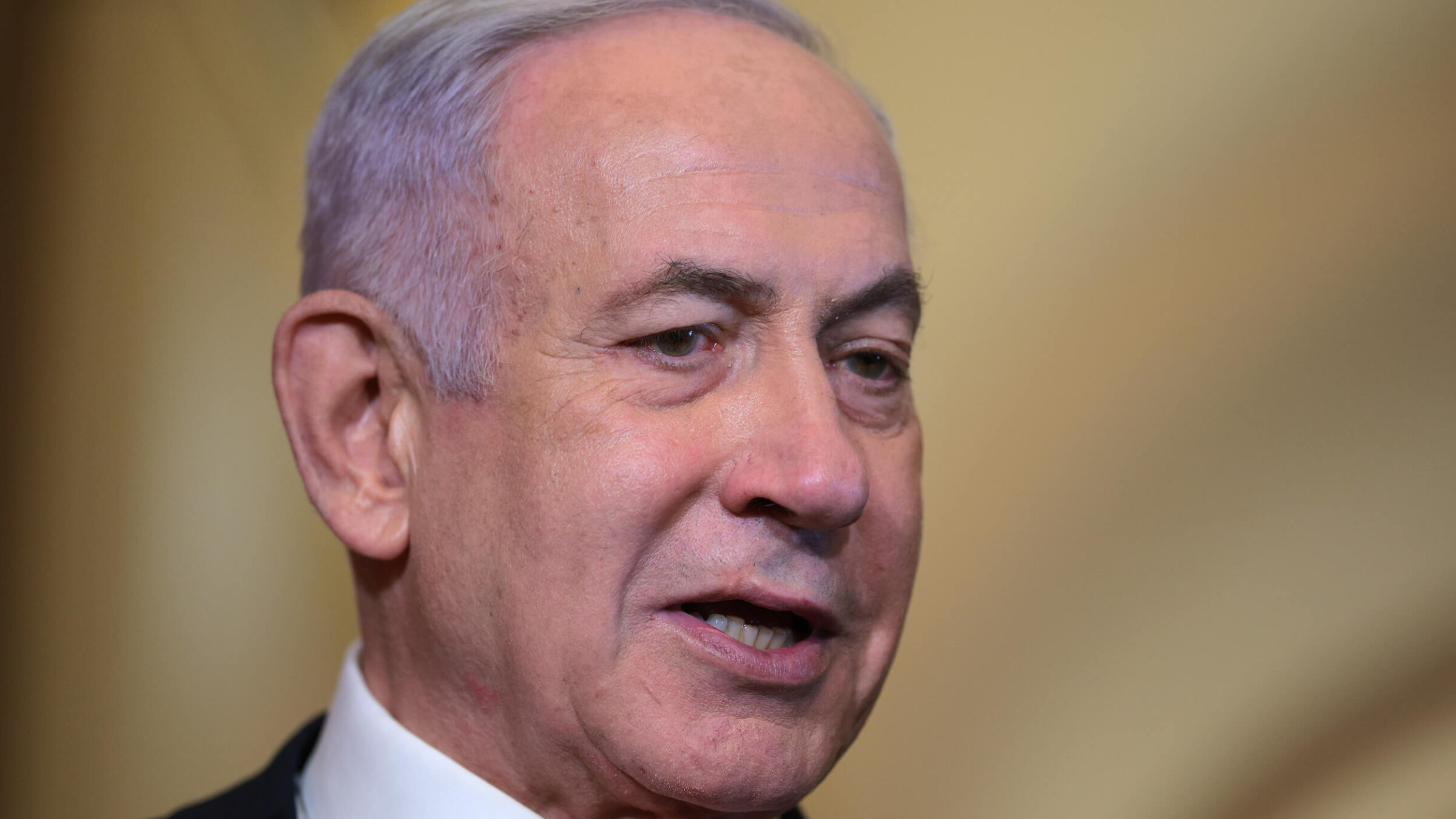Trump has offered Israel an easy way out of more ceasefire talks. Will Netanyahu take it?
A fragile peace is about to encounter a very serious test

Israeli Prime Minister Benjamin Netanyahu on Feb. 7 in Washington, D.C. Photo by Kayla Bartkowski/Getty Images
With negotiations over the second phase of the ceasefire deal set to begin next week, and Israel in shock over the return of four bodies, including the young Bibas children, Ariel and Kfir, the future of the tenuous peace between Israel and Hamas is in jeopardy — especially given that President Donald Trump has essentially given Israel a green light to resume the war.
It would be far better that Israel stay true to the promise of the ceasefire as outlined. But there’s reason to worry that it won’t. Israel has already delayed negotiations on the second stage, and instead of pressuring Prime Minister Benjamin Netanyahu at their Feb. 4 White House meeting, as expected, Trump outflanked Netanyahu from the right by proposing a U.S. takeover in Gaza and the forced relocation of the Palestinians who live there now. Only this week, in Israel, Secretary of State Marco Rubio said Hamas cannot remain in power — which could be seen as permission for Israel to walk away from the deal, which would implicitly leave the militant group in charge of the territory.
But while many Israelis might agree with Rubio — especially after Hamas used Thursday’s release of hostage bodies as an opportunity to stage a horrifying, vicious show of force — there is a better way forward than plunging the region back into a war that would certainly cost thousands more lives, including those of the surviving hostages.
Instead of considering not honoring the ceasefire, Israel should begin to strategize about what happens once it is complete, and all the hostages are home.
A non-military path forward must involve Arab states taking real responsibility — something that they have rarely done in the post-colonial era. Qatar, Egypt, Saudi Arabia, and the UAE cannot sit on the sidelines or function as merely mediators. Indeed, Trump’s urging that they take in millions of refugees might have usefully clarified that they, too, have a stake.
So, instead of using this new leverage from the U.S. to return to war, Netanyahu should work with Trump to use the refigured status quo under his administration to push those states to present Hamas with a clear, unavoidable choice.
What that choice would involve: Hamas being pressured and denied funding and international aid until it had no choice but to cede power, with its exiles leaving Gaza. Then: a massive reconstruction plan for the strip and a governance transition to the Palestinian Authority, contingent on major reforms including a clear succession plan for octogenarian President Mahmoud Abbas (last elected two decades ago), anti-corruption measures, and more.
That reconstruction would include the establishment of a new security framework, with Gulf nations, including the UAE, Saudi Arabia and Egypt, helping police the place.
I’d suggest that as part of this plan, those residents of Gaza who actually wish to relocate (temporarily or permanently) should be allowed to do so — with a right of return — ideally for the West Bank. Israel, in its foolishness, has been impeding this option for years.
As part of their pressure on the Arab states whose participation is necessary in this scenario, Trump and Netanyahu must lay out the alternate possibility — which involves no American reconstruction and only minimal humanitarian aid, and a continued maximal blockade by Israel and Egypt.
There are those who will claim that no rational paradigm will ever move Palestinian public opinion sufficiently to help them seek out, finally, peaceful coexistence with Israel. My decades of experience with Palestinian colleagues and friends say they’re wrong. Test it.
The path I propose might cause the collapse of Netanyahu’s government. Far-right members of his coalition — like Finance Minister Bezalel Smotrich — have made it clear that they are more than willing to sacrifice hostages to keep the war going.
Netanyahu has a choice: do the right thing and work with the Arabs to pressure Hamas, possibly leading to him losing power, or keep the coalition together at the cost of the hostages’ lives. No leader has the right to sacrifice the lives of their citizens for political survival. If Netanyahu chooses to pursue that route, despite that clear truth, it would be inhuman, un-Jewish, and, to me, akin to treason.
The question is: Can he be convinced by anyone — perhaps his strongest international ally — to do otherwise?
Update: This story has been updated to reflect new information about the bodies returned this week. Israel has said that the body Hamas claimed to be Shiri Bibas is not her.














